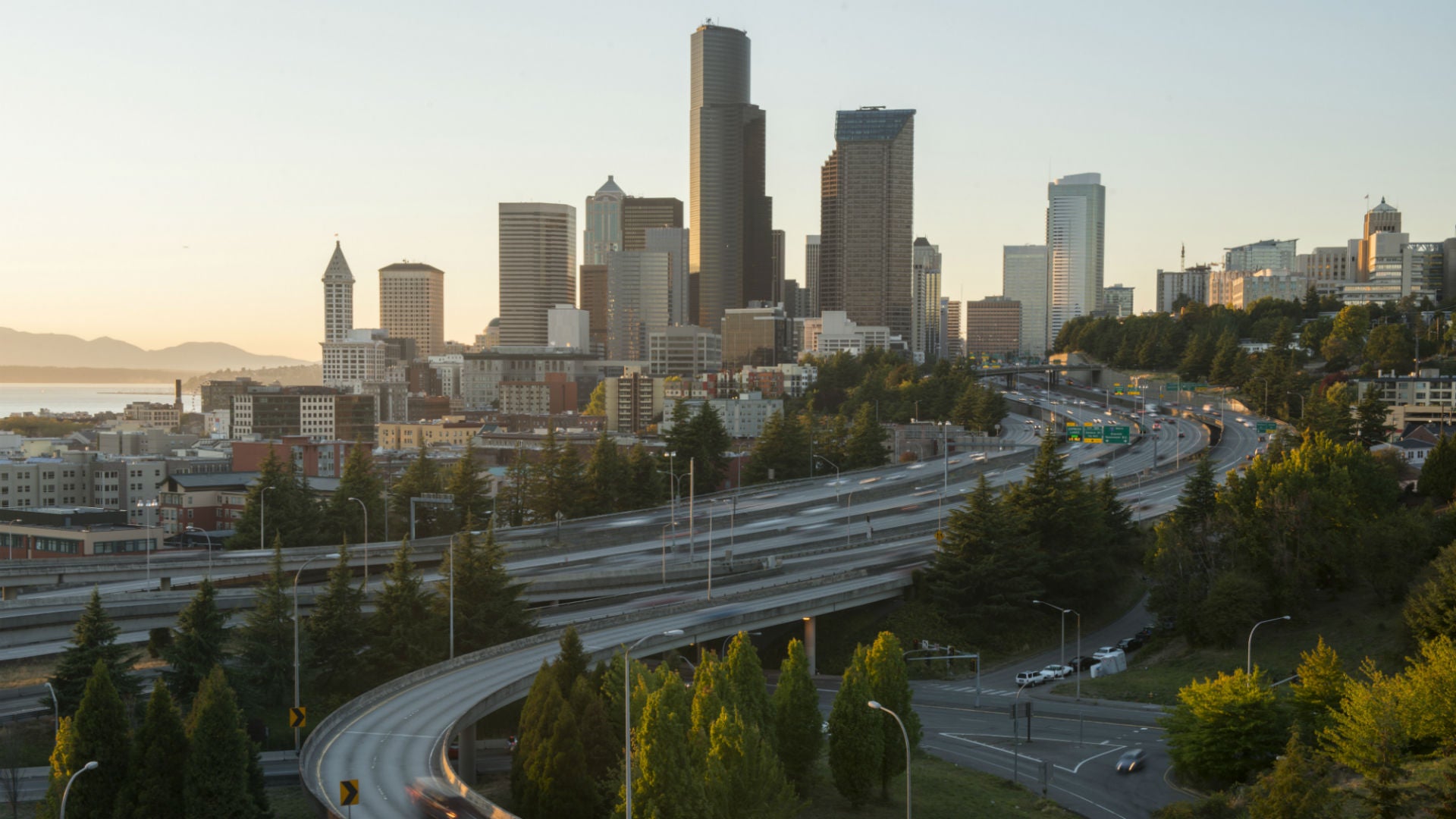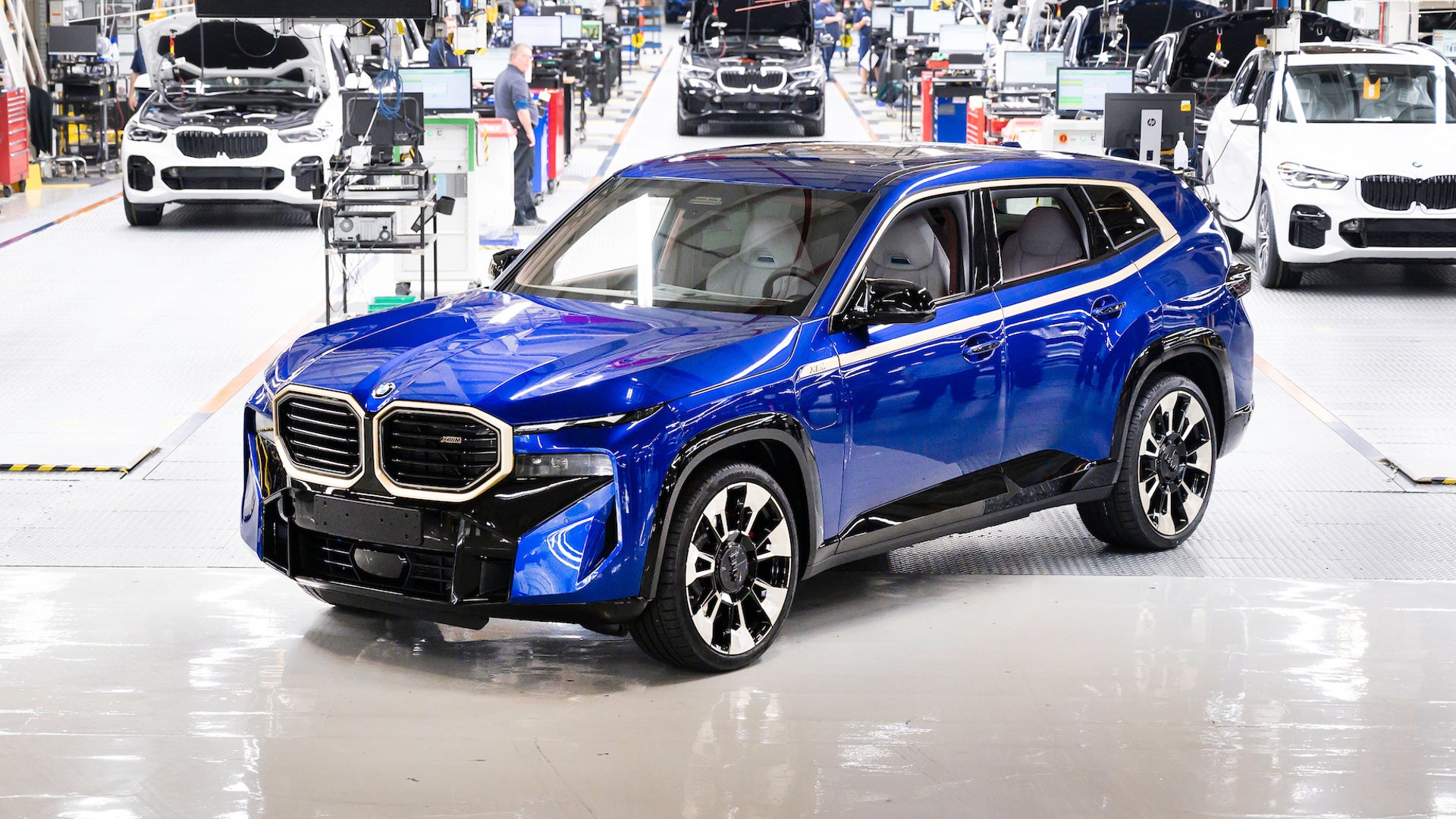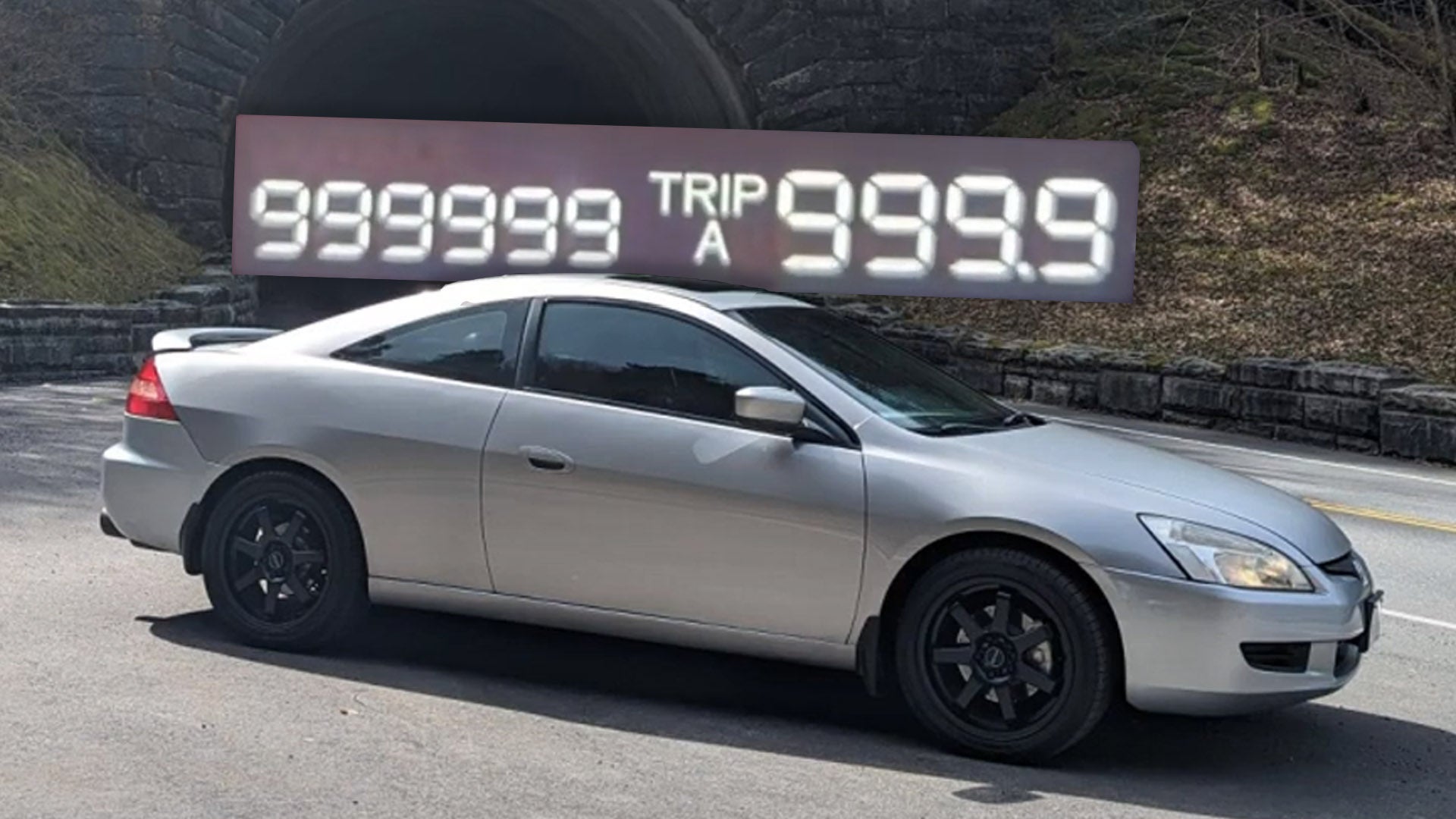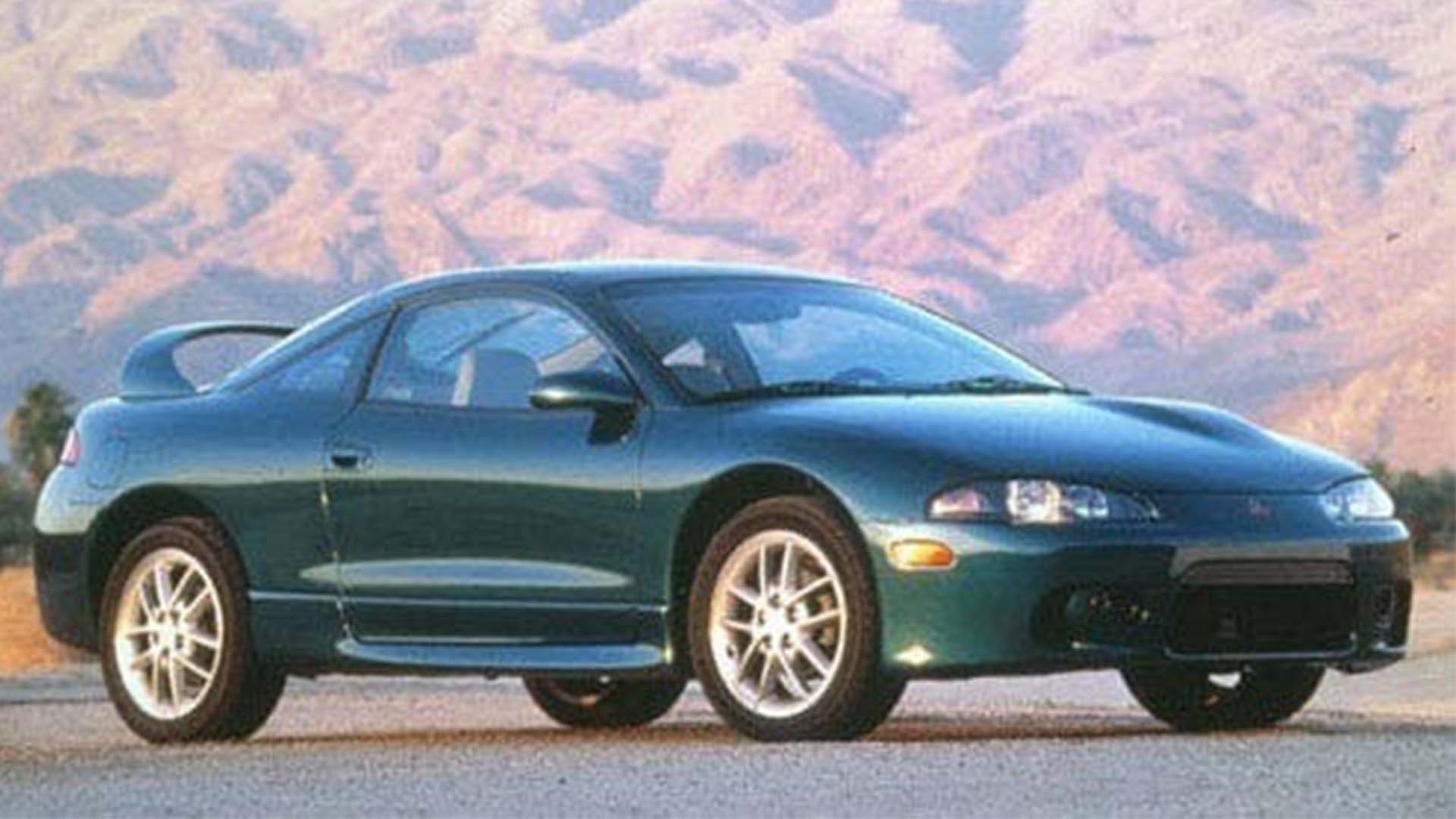Everybody hates traffic. Sitting bumper-to-bumper while commuting can work out to be one of the most frustrating tasks of your entire day, and large tech capitals have proven to be home to some of the most troublesome traffic hotspots. As more companies institute mandatory telecommuting amid the emerging Coronavirus outbreak, the busy highways of these key cities have been emptying out.
Washington is the epicenter of COVID-19 in the United States. It also happens to be a very tech-centric state, housing the corporate offices for heavyweight hitters like Microsoft and Amazon in Seattle, which inevitably creates some of the worst traffic on the west coast. But recently, locals have witnessed a large drop-off in the number of cars and trucks traversing their local roads, seemingly creating a "ghost town" of deserted strips of highway.
According to a study by INRIX Research, the reduction in traffic is directly related to the outbreak of COVID-19. While the first case of the virus was reported in Washington six weeks ago, traffic has only begun to lighten up in the past several days, largely attributed to employers following a county-wide recommendation of permitting non-service workers to telecommute.
At least one Amazon employee and Facebook contractor have tested positive for COVID-19, prompting the tech firms to issue recommendations for its employees to work from home. Google, Microsoft, Twitter, and several other global brands with Washington offices have yet to report an employee-contracted illness, though they have taken precautionary measures permitting employees to telecommute. They've also been restricting social visitors to their campuses.
GPS and mobile data collected by INRIX shows that average travel speeds improved anywhere from five to 10 miles per hour (light green lines in the below image) in the greater Seattle metropolitan area within 24 hours of major tech companies instituting a work-from-home policy. Some areas were seeing free-flow traffic conditions improve as much 15-20 MPH (dark green lines) during peak hours.
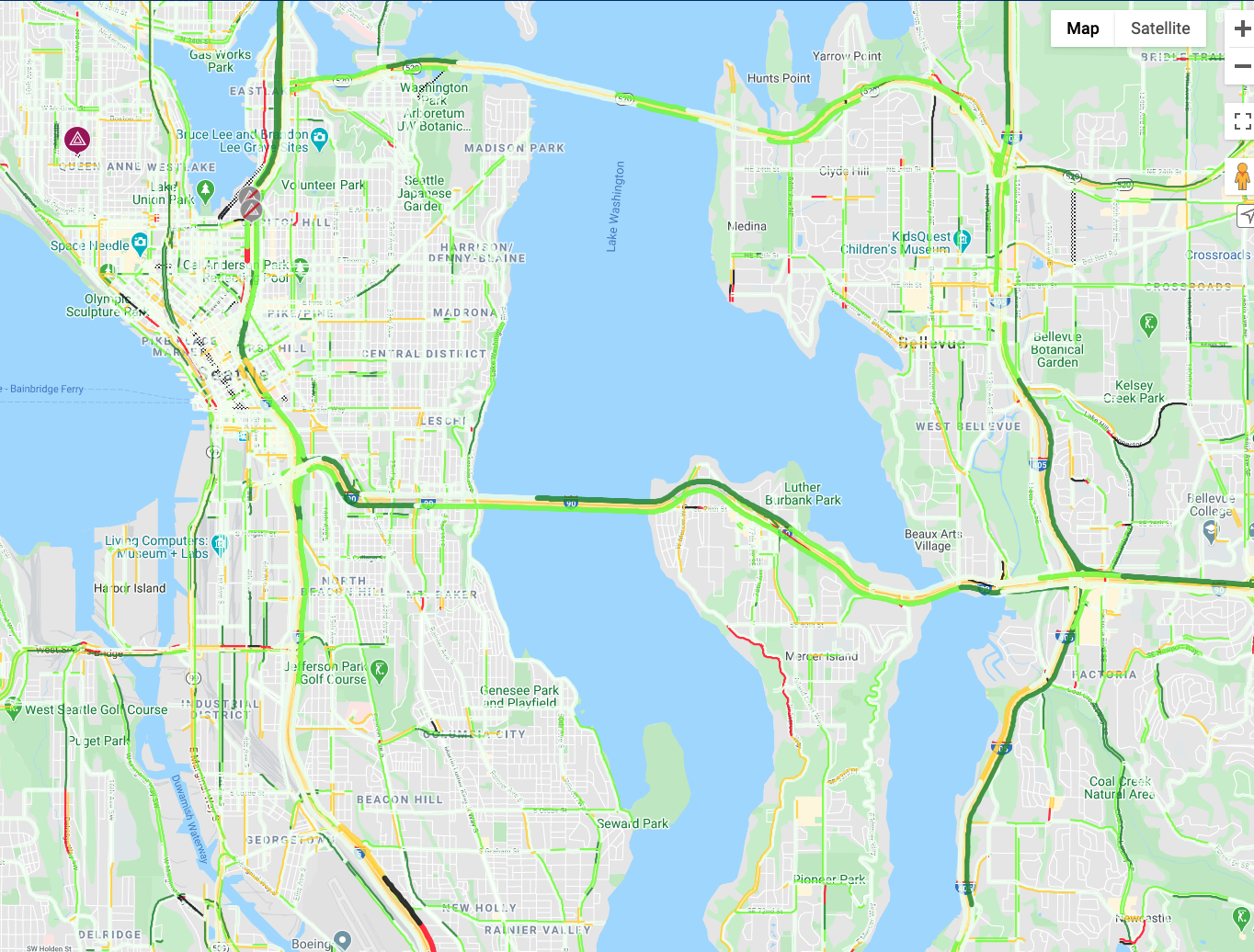
INRIX says that its initial findings point to an overall travel speed increase of between 50 and 100 percent, which it ascribes to new telecommuting opportunities.
Working from home isn't anything new for the technology industry. Many organizations already have telecommuting procedures in place, and even those which would rather institute the meat-in-seat philosophy have turned towards remote working to further prevent the spread of illness to its employees. The added benefit, at least the one observed by INRIX, is directly related to the key transportation infrastructure of an otherwise traffic-ridden city. But the Washington State Department of Transportation says that it's too early to tell if working from home really means shorter commutes for others on the road.
“We look at the range of what’s normal, high end and low end, and travel times have been lower,” Bart Treece, a communications manager with WSDOT, told GeekWire. He later referenced the sunnier weather. “It’s too soon to see if it’s a trend. People tend to drive slower when it’s dark and wet outside.”
It's not clear whether this experiment will succeed in stymieing the spread of COVID-19, or if it will perhaps change the way that employers treat working from home moving forward. One thing is for certain, though—those still required to commute are basking in the silver lining of shortened drives and empty public transportation.
Got a tip? Send us a note: [email protected]
h/t: Car and Driver
